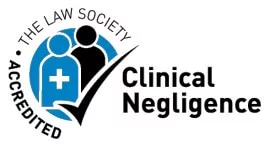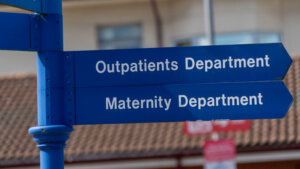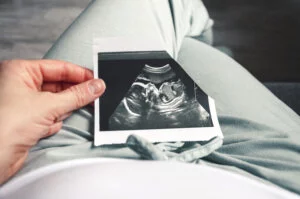Report highlights failings in maternity care

Contact
Table of Contents
The Care Quality Commission (CQC) has recently carried out a national review of 131 maternity inspections between 2022 and 2024, finding that failures identified in maternity care across England are more widespread than previously thought.
Most people will be familiar with the high-profile investigations into maternity failings at the Shrewsbury and Telford NHS Trust, and more recently at Nottingham University Hospitals NHS Trust. But concerningly, 48% of maternity services across England have been rated as inadequate or requiring improvement, with just 4% being classed as outstanding. This shows that poor maternity care is a national issue, and not just isolated to a few trusts.
The CQC report identifies a number of examples of poor practice, including:
- Incidents of serious harm not being reported or being graded inconsistently.
- Women choosing to discharge themselves because of long delays whilst waiting for assessments.
- Units lacking space, facilities and occasionally life-saving equipment.
- Women experiencing discrimination because of their ethnic background.
As solicitors with expertise in dealing with clinical negligence claims following poor maternity care, the above examples are unfortunately something we see very often. It is evident to those who frequently advise mothers and their families following poor maternity outcomes that these issues are widespread and we often see the same mistakes happening time and again, with seemingly no improvement even after individual cases have been investigated, and recommendations made for change.
What is clear is that without concerted national action, led by the government, and further funding being ring-fenced to improve maternity services, maternity care is unlikely to improve, and the cost to the NHS over the long term is likely to increase. The CQC’s director of secondary and specialist care, in response to the report, called for:
“a robust focus on safety to ensure that poor care and preventable harm do not become normalised, and that staff are supported to deliver the high-quality care they want to provide for mothers and babies today and in the future”.
Whilst the report makes for concerning reading, particularly in its assertion that many of the issues identified are systemic, it does offer some hope that with “the right culture, services can improve and learn from one another”.
Specifically, the CQC report identifies a number of areas where improvement needs to be made, as follows:
Responding and learning from incidents
The CQC highlights a ‘potential normalising of serious harm in maternity’, with women not always receiving the information they need to process what happened to them, or to make informed decisions about future pregnancies. This is something that clinical negligence lawyers see very frequently in practice, with many of our clients complaining that they were simply not told what went wrong in their case, or not offered any follow up appointment to discuss how what has happened to them may impact any future pregnancy. We also act for clients where their complaints have been dismissed even when their child has suffered significant harm and notwithstanding this, the Trust has failed to properly investigate the cause of this. A further example we have seen are where Serious Incident Reports prepared by the Defendant NHS Trust have denied there have been failures in spite of compelling evidence that there have been fundamental failures in their advice and treatment.
Risk assessment and triage
The CQC found significant variation for maternity triage as there are no national targets or standards for this area. This meant guidance on how and when to contact triage was not clear or consistent between services. At Osbornes we are currently instructed on a number of cases in which women were either given incorrect advice on when to contact maternity triage, or not triaged properly when they did so, leading to poor outcomes.
Recruitment and retention of staff
Whilst this is a problem across the NHS, the CQC report found chronic issues around recruitment and retention of the maternity workforce as a key issue affecting the quality of care that women receive. A key problem was found to be maternity staff leaving the profession due to current pressures, which could potentially be alleviated with better support and training.
The CQC found that some maternity units were not fit for purpose, as they lacked space and facilities and, in a small number of cases, appropriate levels of potentially life-saving equipment. The report calls for more capital investment to alleviate this issue.
Inequalities and racism
The report found significant differences in the way trusts collect and use demographic data to address health inequalities in their local populations, in addition to some trusts where both staff and people who were using the service experienced discrimination because of their ethnic background, or issues associated with having English as a second language. Again, these issues are something we see very frequently in practice. Osbornes is currently instructed in a number of maternity cases where families from ethnic minority background, or with English as their second language, have experienced poor maternity outcomes. A frequent complaint we hear from families with English as a second language, or with no English, is that no interpretation/translation services were offered to them, even during vital discussions about whether to proceed with caesarean section delivery or induction of labour and when communicating failures related to brain damage suffered by their baby during delivery.
Communication with women and families
The CQC found communication with women and their families is not always good enough, particularly for those with protected equality characteristics. It highlights that this affects their ability to consent to treatment and can perpetuate levels of fear and anxiety. It is vital that women are able to give their informed consent to treatment, both to protect their right to patient autonomy and safety, but also in more practical terms to ensure that Trusts are complying with their own legal obligations.
It is hoped that this report will draw the crisis in maternity care to the government’s attention and that addressing these issues will move to the top of the new government’s agenda. Without further action, it is likely that we will see the same issues repeating themselves as they have to date, more negative outcomes for women and their families, and as a result more clinical negligence claims which come at a huge cost to the NHS.
Contact us
To speak with one of our solicitors, contact us by:
- Filling in our online enquiry form; or
- Calling us on 020 7485 8811
Related reading
Share this article
Contact us today
Call us 020 7485 8811
Email us Send us an email and we’ll get back to you
Osbornes has a skilled team of solicitors advising clients on a wide range of clinical negligence matters.
Hard working, approachable, good knowledge of clinical negligence and clients’ specific conditions
A joy to work with and always 100% client focused at all times.
The clinical negligence team at Osbornes is much lauded for its ability to ‘represent the diverse range of London-based clients
They are an excellent firm who achieve fantastic outcomes for their clients. They are also very prominent in injuries to those travelling to or from Europe. Multiple languages are spoken by the team.
Stephanie Prior is a first-rate clinical negligence specialist whose industry, great experience and medical background put her in an exceptional class.
This firm is responsive and efficient. Their rapidity in dealing with complications or hiccups is excellent.
Really great clinical negligence practice, staffed by experienced practitioners who know how NHS Trusts work. They also build great rapport with clients.’
The Osbornes mediation team is excellent and has some good individuals.
Lisa Pepper is a talented lawyer and we regularly refer to her for mediation
Stephanie has developed a particularly strong reputation for her handling of birth injury claims, as well as cases concerning surgical negligence and delays in surgery.
"An excellent firm which achieves fantastic outcomes for clients."
"Stephanie Prior takes on complex cases and gets excellent results. She has a background in medicine which serves her clients well and is a realistic but tough litigator."
"Stephanie Prior is hugely dedicated, adored by her clients, tenacious, efficient and extremely knowledgeable."
"Stephanie Prior is very good with troubled clients and is easily able to make them feel at ease."
"Stephanie shows sensitivity and deals with things in an understanding way."
Osbornes provides a very intimate and personal client service which is increasingly rare in this sector.
The lawyers in the team are highly experienced and will drive cases very hard on behalf of their clients.
"Stephanie Prior has a realistic attitude to the complexities of the cases. She wins the trust of her clients and goes the extra mile to ensure they get the best outcomes."
"Stephanie Prior... manages a varied caseload, including obstetric claims, child and adult brain injury cases and fatal and non-fatal spinal cord injury cases."
"Stephanie is experienced, knowledgeable of all aspects of clinical negligence work, and strategic in running cases."
"The team were extremely professional in putting my needs first. There was a joined-up approach to catering for the client, and all lawyers involved were briefed and constructive."
Stephanie Prior is always very professional and kind. Highly recommended.
Quite simply excellent, with a highly competent and well-rounded team. They understand complex medical litigation and have been our lifesavers, and we will always owe them our immense gratitude.
Related InsightsVIEW ALL
- 13.5.2025
Damages Recovered for Necrotic Pressure Sore
Elline Demetriou recovers damages following a necrotic pressure sore on her client’s heel Elline Demetriou, Solicitor in our clinical...
Read more - 12.5.2025
Complaints Against Suspended Surgeon Ms Kuldeep Stohr
Ms Kuldeep Stohr, orthopaedic surgeon at Addenbrooke’s Hospital suspended In February 2025, Cambridge University Hospitals NHS Foundation Trust (CUH) confirmed...
Read more - 6.5.2025
Six-Figure Settlement for Negligent C-Section Delivery
Osbornes secures a six-figure settlement following a negligent caesarean section delivery Jodi Newton, Partner and head of our Obstetric and...
Read more - 6.5.2025
Six-Figure Settlement for Negligent Shoulder Surgery
Settlement following a claim against Bedfordshire Hospitals NHS Foundation Trust Elline Demetriou, a Solicitor in our clinical negligence team, acted...
Read more - 29.4.2025
Five-Figure Settlement in Fatal Medical Negligence Case
Osbornes Law secures a five-figure compensation following a fatal medical negligence claim Osbornes acted for our client, E, who brought...
Read more - 4.4.2025
Time To Move On From Physician Associates?
BMA raises concerns over patient safety: the risks of Physician and Anaesthesia Associates in the NHS The British Medical Association (...
Read more - 13.3.2025
Addenbrooke’s Hospital Complaints
Review finds harm to children by surgeon at Addenbrooke’s Hospital An independent review by Cambridge University Hospitals NHS Foundation...
Read more - 4.2.2025
Claim Settled for Child’s Surgery Injuries
Osbornes secures settlement for child’s surgery-related injuries Osbornes Law successfully represented a minor, X, in a claim against two...
Read more - 29.1.2025
£27,000 DVT Claim Settled Against Royal Free London NHS
Successful settlement for DVT case against Royal Free London NHS Foundation Trust Successful Settlement of £27,000.00 for DVT Claim against Royal...
Read more - 14.10.2024
Multi-Million Settlement in Cerebral Palsy Negligence Case
Judge awards multi-million settlement in cerebral palsy medical negligence claim Jodi Newton, Partner and specialist medical negligence lawyer at Osbornes...
Read more - 12.9.2024
Great Ormond Street Hospital Negligence & How to Claim
Review of negligence at Great Ormond Street Hospital At Osbornes Law, we’ve supported families through some of the most...
Read more - 29.8.2024
AB v Central London Community Healthcare NHS Trust
Background Our client, AB, had been using the Nexplanon contraceptive device for 6 years. She had a Nexplanon device inserted into...
Read more - 30.7.2024
What Is the Role Of a Physician Associate?
What does the Position of Physician Associate Mean for the NHS? There are many different jobs within the NHS, each...
Read more - 17.7.2024
Settlement for Delay in Wrist Fracture Treatment
Our Clinical Negligence team have recently agreed the settlement of a case relating to a delay in the treatment of...
Read more - 28.6.2024
£55,000 Settlement for Stillbirth Claim Against Chelsea and Westminster...
Successful Settlement for Stillbirth Claim Against Chelsea and Westminster Hospital NHS Foundation Trust Background Nick Leahy, an Associate in our...
Read more - 9.5.2024
Claim Against Royal Free London NHS Foundation Trust...
Client obtains settlement after being victim of a surgical negligence Jodi Newton, Partner in our Clinical Negligence department, recently settled...
Read more - 30.4.2024
Settlement In Neonatal Death Case
Settlement in fatal medical negligence case against King’s College Hospital Nick Leahy, Associate in our Clinical Negligence department, recently...
Read more - 8.4.2024
Epilepsy Negligence Compensation Claim
Nicholas Leahy, an Associate in the Clinical Negligence team at Osbornes Law, has recently settled a long-running fatal medical negligence...
Read more - 11.1.2024
New UK Supreme Court Ruling regarding Secondary Victims...
The Supreme Court has today, on the 11th January 2024, upheld the Court of Appeal’s order to dismiss the claims...
Read more - 11.1.2024
Secondary Victim Claims
Secondary victims in clinical negligence cases What is a secondary victim in clinical negligence cases? Most compensation claims are concerned...
Read more - 5.1.2024
Delayed Pre-Eclampsia Diagnosis Results in Loss of Baby
Introduction to the case Nick Leahy, Associate in our Clinical Negligence department, has recently settled a birth injury claim against...
Read more - 12.12.2023
NHS Compensation Payouts Guide
What Are NHS Compensation Payouts? In the UK, the National Health Service delivers the vast majority of healthcare services. When...
Read more - 23.11.2023
Claim against Bradford Teaching Hospitals NHS Foundation Trust
High-risk pregnancy following previous miscarriage Osbornes acted for a Claimant, C, in her birth negligence claim against Bradford Teaching Hospitals...
Read more - 21.9.2023
Large Compensation for Delayed Laryngeal Cancer Diagnosis
Actress receives financial award after life-changing missed cancer diagnosis. Jodi Newton acted for a client who was belatedly diagnosed with...
Read more
































